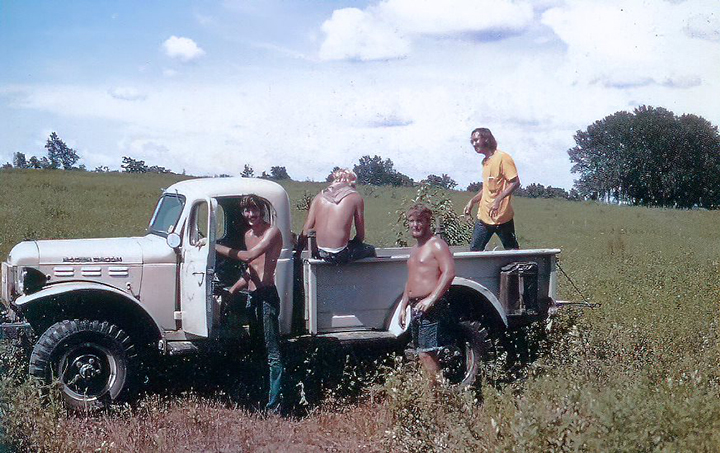James Michael Wisenbaker
Contributor
This is the first article in a series taken from Wisenbaker’s memoirs about archaeological digs at Hutto Pond.
In the summer of 1971, the Division of Archives, History and Records Management (FDAHRM and the Division of Historical Resources since 1986) conducted archaeological excavations at site 8MD18, just southwest of Madison. Calvin Jones, a well-known and highly revered state archaeologist, discovered the Hutto Pond site during his survey of the proposed I-10 corridor in Florida. Interstate 10 now connects Jacksonville with Los Angeles. State reviewers adjudged the site significant enough to call for a Phase II test excavation. Unfortunately, at that time, the Florida Department of Transportation would not fund any analyses and write-ups of excavated archaeological sites, including Hutto Pond.
Under the direction of Daniel “Dan” Penton, of Jay, FL and Frank Fryman, of Foster, Kentucky, they hired five students from Florida State University's Anthropology Department. While Fryman did some mapping, he spent little time at the site. Penton acted as the crew chief and principal investigator. Christa Brown, of Pensacola, William D. “Bill” Browning, of Daytona Beach, Brent Mabry, of Apalachicola, Jacqueline “Jackie” Moore, of Winter Haven, David Swindell, of Tallahassee and I served as his field crew.
We received a handsome sum of $1.75 per hour (70 dollars a week) but no per diem. Still, it beat the heck out of spending another painful stretch at Clemons Heating and Air Conditioning, where I’d work the previous four summers.
We lived on-site at Hutto Pond during the week, going home after work every Friday afternoon and returning early on Monday mornings. While the men lived on-site in tents, the women slept in a tiny Scotty trailer on the other side of the pond. Being a newlywed, Bill Browning made the 104-mile round trip every day to be with his blushing bride and former high school sweetheart, Jennifer.
The director of FDAHRM, Robert Williams (a former state senator from an ultra-conservative Panhandle region), demanded that the two young women on our crew sleep in a different place from the men. Williams agonized over potential hanky-panky if we all slumbered in the same spot. Penton scouted the surrounding lands looking for a site to put the girls' trailer. Dan drove around and found a large homestead near Hutto Pond. He pulled in and tried to talk to the man who owned the property. The guy took one look at Penton and replied gruffly, “We don’t want you or none of your kind around here.”
Dan returned and reported to us what had happened. So Swindell, Mabry and I later plotted that we would repay the rude man for his "hospitality." Later, David brought over a big ham to the site and wrapped it up in foil. He then buried it in the ground and built a roaring fire on top of it. Swindell had hoped to cook it for everyone to eat. The experiment failed miserably, and the pork quickly became quite rank.
So, the three of us crammed it into a bag. After dark, we drove over to his house with the sack tethered to one of our vehicles' radio antenna. We used some gloves to yank the ham out of the bag. While Mabry and I served as lookouts, David shoved the rancid meat into the bloke's mailbox. We also left some of it under his front porch. When we drove by the next day, blowflies swarmed the metal container. We never heard another peep of our prank. I'm not sure what his poor mailman must have thought. In any event, we ended up placing Christa and Jackie's trailer just on the other side of the pond from us.

